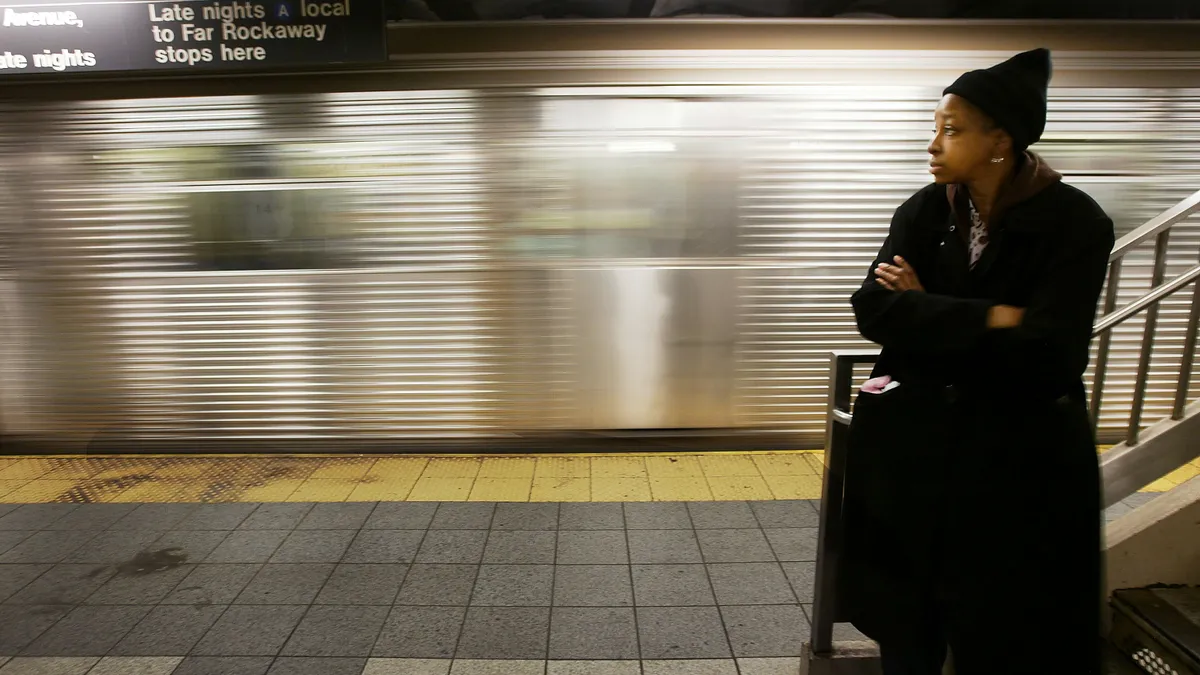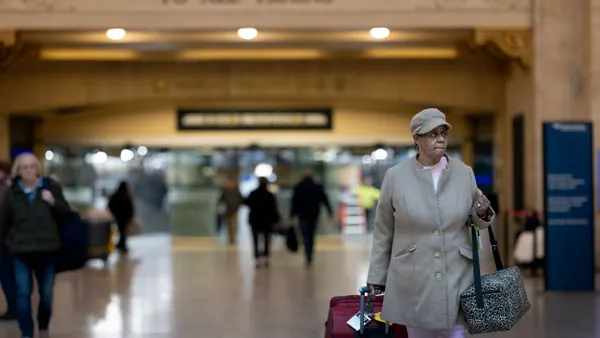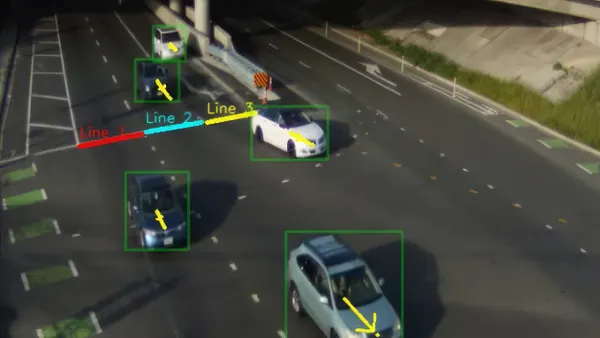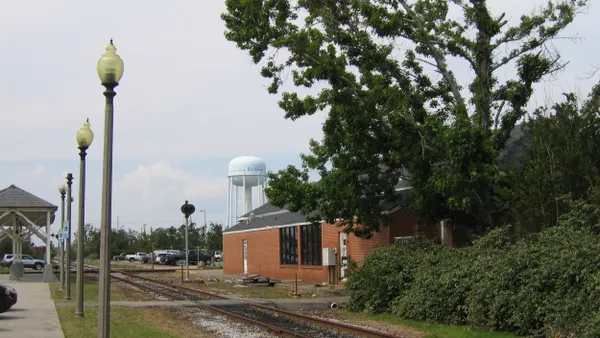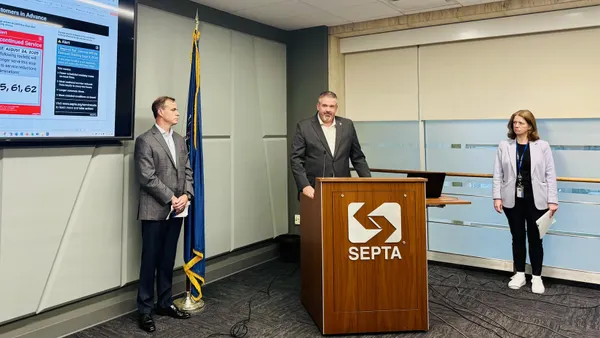Women are three times more likely than men to worry about their safety on public transit. They also rely more on public transportation, where sexual harassment and more serious gender-based violence can be commonplace for many.
That reality can lead women to choose more expensive travel options – driving or ride-hailing – creating what Sarah Kaufman, associate director at the New York University Rudin Center for Transportation, called a "pink tax" in a recent study she helped prepare.
"That then translates to reduced ridership on the train, which can be a recipe for more crime because there are fewer witnesses or potential people to intervene," said Kaufman.
But crime isn't the only factor imposing extra financial burdens on women. Nationally, 61% of women are caregivers and are more likely to be traveling with children in strollers or people in wheelchairs. Kaufman points out that fare gates and turnstiles often aren't wide enough to accommodate these mobility devices. Train stations frequently lack working elevators. Bike shares and ride-hail vehicles are absent child seats.
Studies show that travel patterns for women differ from those for men. A landmark 2019 study conducted by the Los Angeles County Metropolitan Transportation Authority (LA Metro), "Understanding How Women Travel," found that women in Los Angeles make more trips per day than men, make shorter trips to a wider variety of destinations and take fewer solo car trips than men. Women are also more likely to make trips involving multiple stops and to travel mid-day when traditional transit runs less frequently.
Safety concerns increase after dark. In a focus group conducted as part of the LA Metro study, most women said they would consider switching to a ride-hailing service after 8 p.m. or 9 p.m.
That concern was echoed by Melissa Faith Hart, founder and CEO of e-BodyGuard, a mobile app that makes it easier to report a crime. She explained that if it's nighttime and she's going alone to downtown Denver, "I would never get on the light rail." With a background in public safety and technology, she helped prepare the Rudin Center study. "When sexual harassment or assault does occur," the study determined, "too often the incident is difficult to report, and the offender is not held accountable."
The app enables users to directly contact 911 and collect photos and information at a crime location. "My hope is that by giving control to the community from this type of app, when an incident occurs the criminal justice system can respond quicker and faster and not re-victimize that victim," she said.
Recommendations: consider women's needs in transportation design
The Rudin Center study involved a series of three workshops with a diverse group of 65 participants, Kaufman said. The outcome was a selection of workable ideas developed by the participants and facilitators, who worked together to form actionable recommendations. Better incident reporting was top of the list.
Other recommendations included:
- Brighter station lighting, platform markings indicating conductor cars, multilingual resources and multiple means of communication to accommodate those with visual or hearing impairments.
- Family fares that allow a single payment for adults with children, making public transit more affordable; and better accommodating families with elevators and wider entry gates.
- Trip-planning apps that take personal safety into account, such as routing walks along well-lit streets.
- Enabling communities to create ways to help riders find safe spaces or connect with volunteers at their local transit stops.
- Shared bike and scooter mobility designed for women, with child seats, places for bags and packages, and tandem bikes or bike-shares designed for children.
- Transportation data that breaks out differences by gender in order to inform future planning processes.
The next step is to put some of these initiatives into action, Kaufman said. "Now that these ideas are out there we can help develop public-private partnerships that would allow for some of these solutions to come to life."



